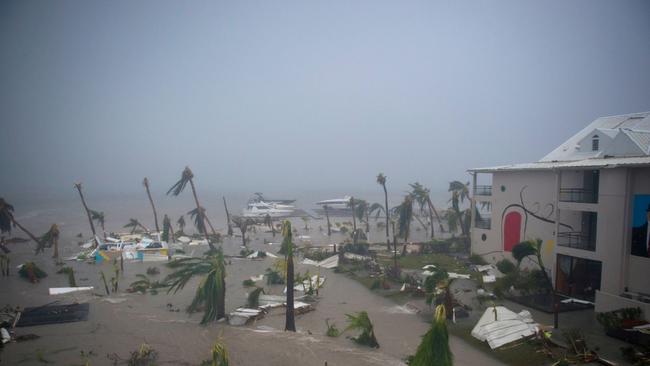APRA stress tests for climate-change
The prudential regulator will stress test the financial system to measure companies’ ability to deal with climate risks.

The prudential regulator will launch stress tests of the financial system to measure companies’ ability to deal with climate risks, arguing climate change and society’s response to it are already affecting the global economy.
Australian Prudential Regulation Authority member Geoff Summerhayes last night told the Centre for Policy Development in Sydney the regulator planned to survey banks, insurance companies and superannuation funds to review climate-related disclosures and better understand emerging best practices.
“Whether due to regulatory action or — more likely — pressure from investors and consumers, Australia’s financial sector can expect to see more emphasis on disclosure around climate risk exposure and management,” Mr Summerhayes said.
Earlier this year, Mr Summerhayes gave a landmark speech arguing climate change was a “material” risk to companies and warned that company directors could be liable if they failed to incorporate climate change risks into their financial models and disclose the risks they faced as the economy transitioned to a low carbon system.
“Since then, numerous developments, domestically and internationally, have shaped APRA’s supervisory approach to the financial impact of global warming for our regulated entities,” he said last night.
“As the prudential regulator, APRA has a clear duty to warn the institutions we regulate if we identify risks that could threaten the interests of Australia’s financial beneficiaries or the overall stability of the system.”
APRA has since held meetings with Treasury, the Australian Securities & Investments Commissions and the Reserve Bank about the risk to the economy related to climate change.
Mr Summerhayes said APRA’s view was that “climate change and — here’s the crucial bit — society’s responses to it are starting to affect the global economy”.
“The transition to a low-carbon economy is under way and moving quickly. The weight of money, pushed by commercial imperatives such as investment, innovation and reputational factors, is increasingly driving that shift, rather than scientists or policymakers,” he said.
ANZ recently became the first Australian bank to report using the Task Force on Climate-Related Financial Disclosures recommendations for its latest annual report.
In the US, Blackrock and Vanguard, the world’s two biggest investment management firms, forced oil giants ExxonMobil and Occidental Petroleum to publish regular reports of the possible impact on their businesses of climate change. The market for green bonds, meanwhile, has grown from issuance of only $11 billion in 2013 to more than $65bn so far this year.
In Australia the transition is also visible. There is an electric car showroom in Martin Place and Australia has more rooftop solar panels per capita than any other country.
Sydney-based insurer QBE recently warned 2017 was likely to be “the costliest year in the history of the global insurance industry” with a string of disasters such as Cyclone Debbie resulting in significant claims.



To join the conversation, please log in. Don't have an account? Register
Join the conversation, you are commenting as Logout